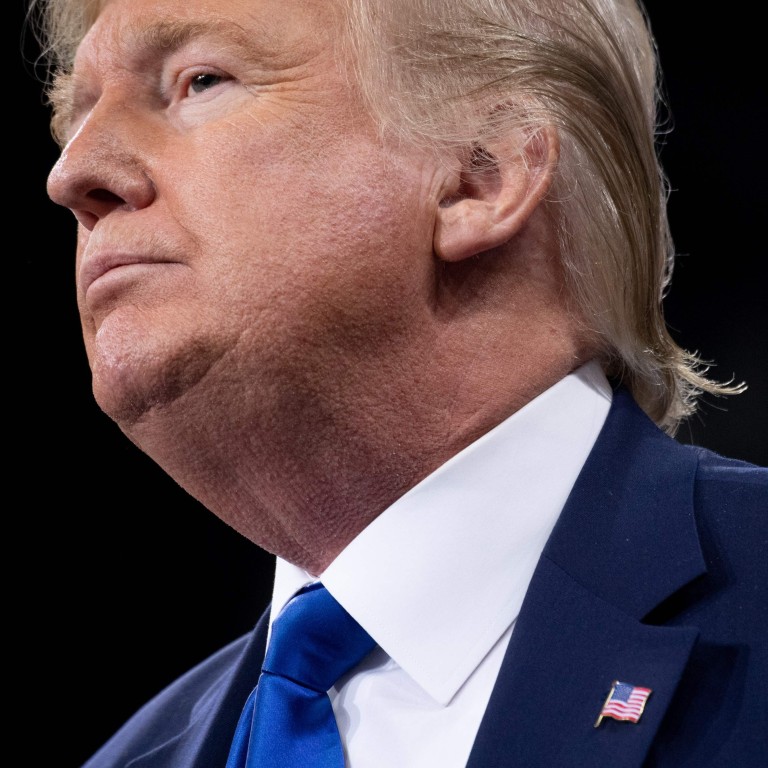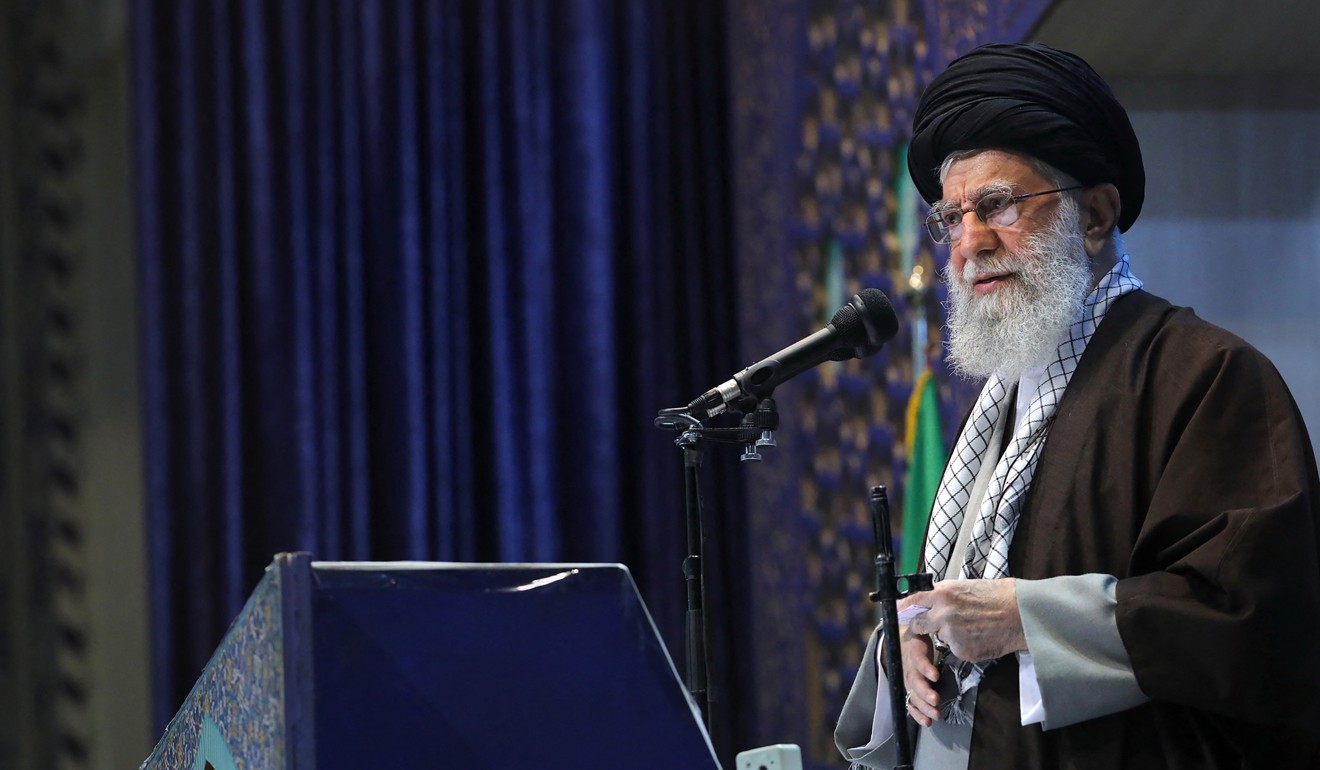
Donald Trump says Iran’s supreme leader Khamenei ‘should be very careful with his words’ after ‘American clowns’ insult
- Khamenei harshly criticised US during Friday sermon, dismissing those he said pretend to support his nation but want to stick ‘poisoned dagger’ in its back
- Pentagon says no effort to play down injuries or delay information after revealing that 11 soldiers were hurt in Iranian missile strike on January 8
US President Donald Trump said Iran’s Supreme Leader Ayatollah Ali Khamenei should be very careful about what he says after Khamenei harshly criticised the United States in a Friday prayers sermon.
“The so-called ‘Supreme Leader’ of Iran, who has not been so Supreme lately, had some nasty things to say about the United States and Europe,” Trump said in a tweet.
“Their economy is crashing, and their people are suffering. He should be very careful with his words!”
Khamenei had lashed out at Western countries as he led Friday prayers in Tehran for the first time in eight years, dismissing “American clowns” who he said pretend to support the Iranian nation but want to stick their “poisoned dagger” into its back.
The top cleric used his rare appearance at the weekly prayers to deliver a fiery address in which he insisted Iran would not bow to US pressure after months of crushing sanctions and a series of recent crises – from the American killing of top Iranian general Qassem Soleimani to Iran’s accidental shooting down of a Ukrainian passenger plane.
In response to Soleimani’s killing, Iran launched a barrage of ballistic missiles targeting US troops in Iraq, without causing serious injuries.
However, US officials said on Friday that 11 US soldiers were flown out of Iraq for evaluation of concussion-like symptoms in the days following the missile strike, contradicting an earlier claims that the attack caused no harm to American forces.
The Pentagon said there had been no effort to play down or delay the release of information on the injuries, adding that the public learned just hours after the defence secretary.
Chief Pentagon spokesman Jonathan Hoffman said Defence Secretary Mark Esper did not know of the injuries until he was told on Thursday afternoon that the 11 troops had been sent for evaluation at US medical facilities – eight in Germany and three in Kuwait.
Hoffman said the notification to Esper was in line with military procedures, which he said do not require notification of service member casualties to the Pentagon unless they involve the loss of life, limb or eyesight.
As recently as Tuesday night, Trump said he had been told no American had been harmed in the Iranian missile strike on January 8.
The question of American casualties was especially significant at the time because the missile attack’s results were seen as influencing a US decision on whether to retaliate and risk a broader war with Iran.
Iran nuclear accord in balance as Europeans trigger dispute mechanism
Trump chose not to retaliate, and the tensions with Iran have eased somewhat. Pakistani Foreign Minister Shah Mahmood Qureshi, who was in Washington on Friday to meet US Secretary of State Mike Pompeo, told reporters that Iranian leaders told him earlier this week in Tehran that their missile attack was sufficient for now as retaliation.
“They do not want to fight. They do not want war,” Qureshi told a news conference at the Pakistan embassy.
After Esper was notified of the possible brain injuries on Thursday, US Central Command put out a public statement saying “several” troops were treated for concussion symptoms from the missile blasts, and that “out of an abundance of caution,” some of the injured troops were flown out of Iraq for follow-on screening.

Medical personnel at the Al-Asad airbase in Iraq, which was targeted in the attack, do not have a magnetic resonance imaging scanner, which can be used to diagnose brain injuries.
“I think everyone would agree that we could consider this an injury,” Hoffman said of the concussion symptoms, which he said became apparent over a period of days. Most or all of the troops initially resumed their military duties, he said.
One service member with concussion-like symptoms was flown out of Iraq on January 10; the rest were taken out five days later, Hoffman said. He denied that anyone had downplayed the lethal potential of the Iranian missiles or delayed the reporting of the injuries out of political considerations.
“This idea that there was an effort to de-emphasise injuries for some sort of amorphous political agenda doesn’t hold water,” Hoffman said.
Reuters and Associated Press

